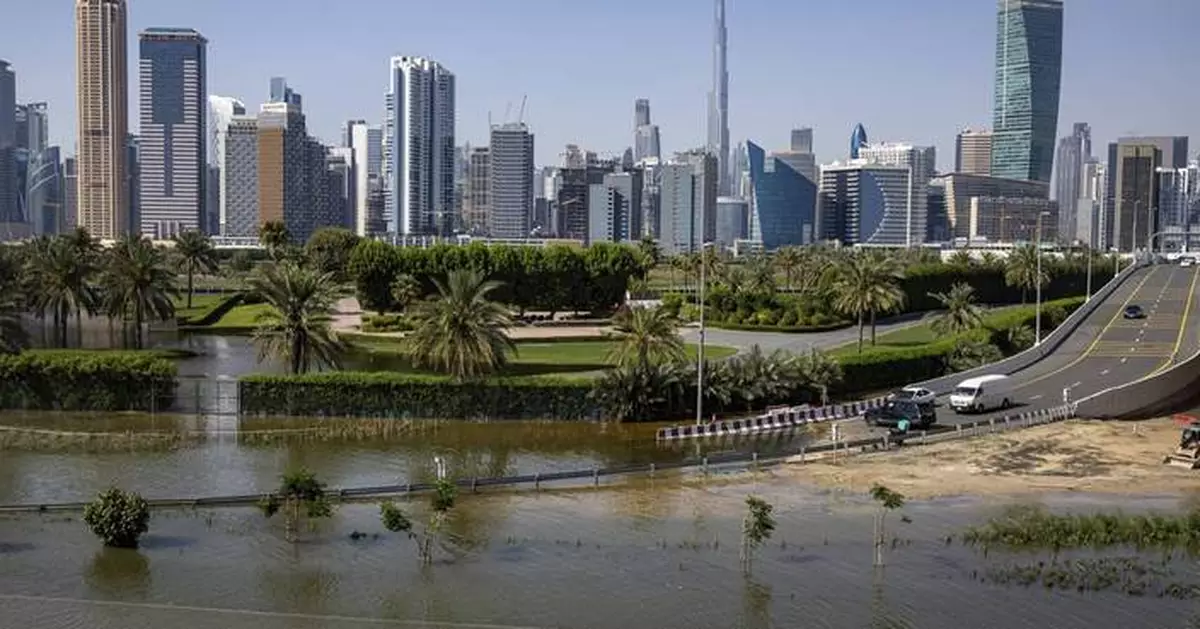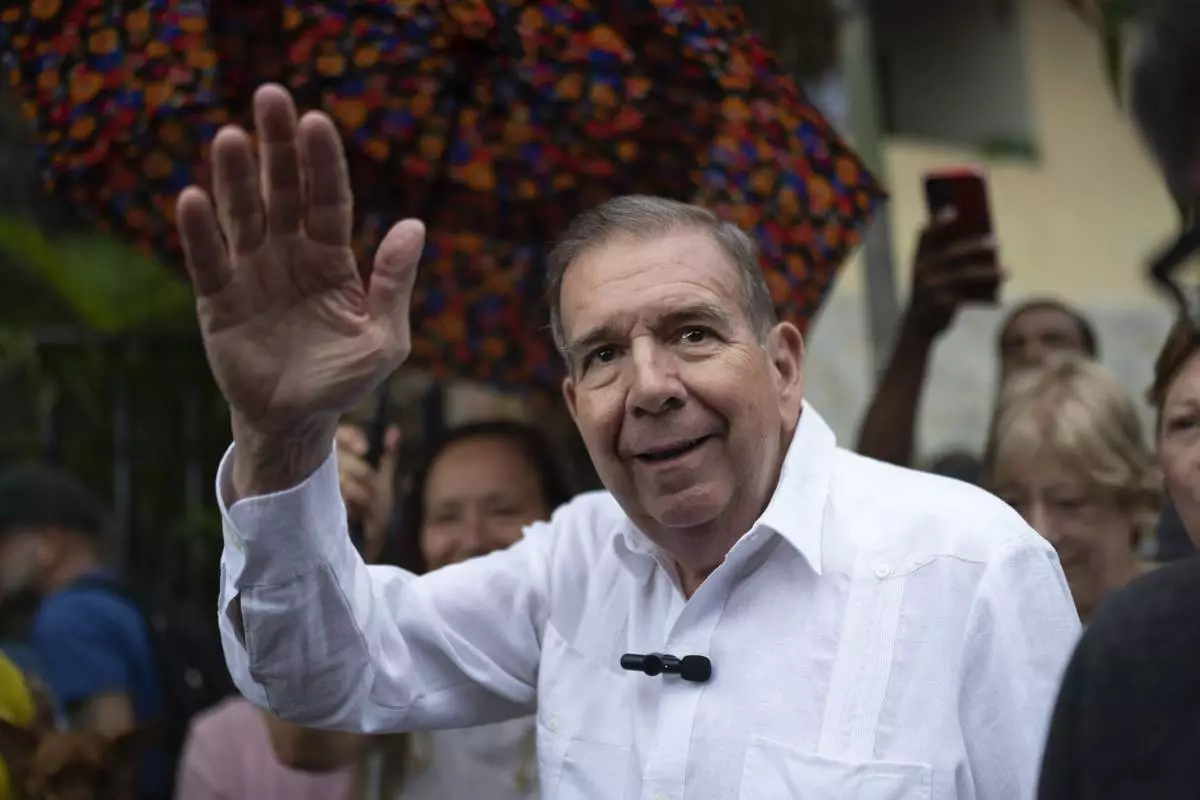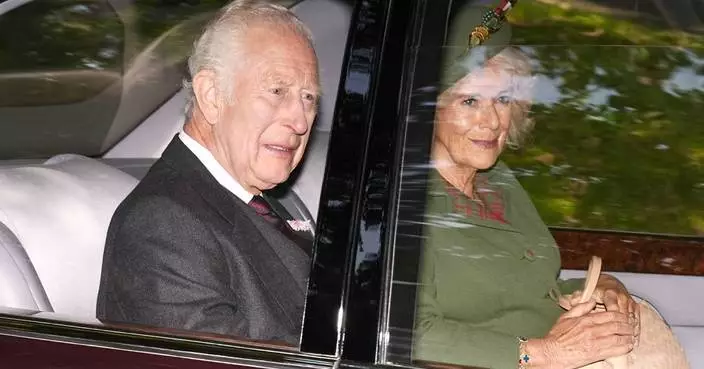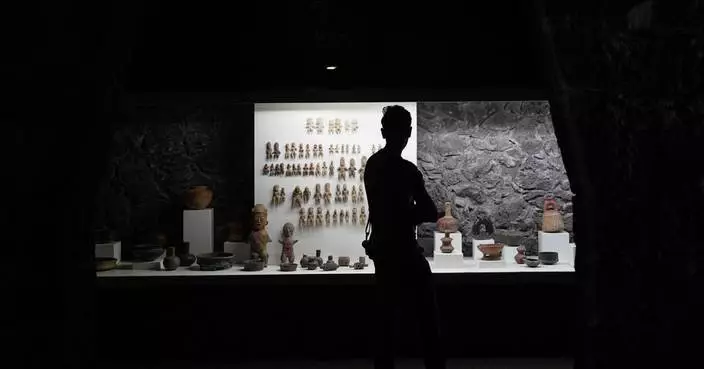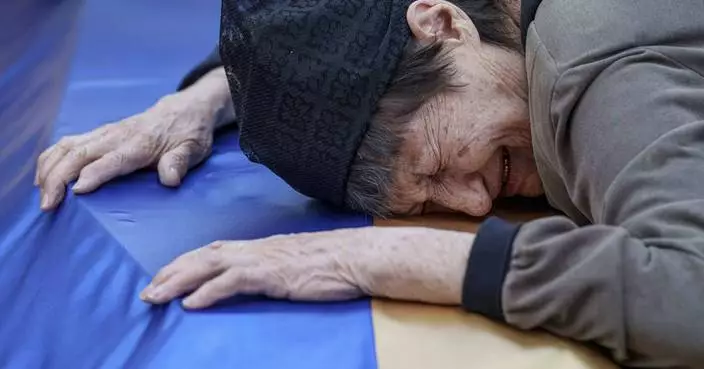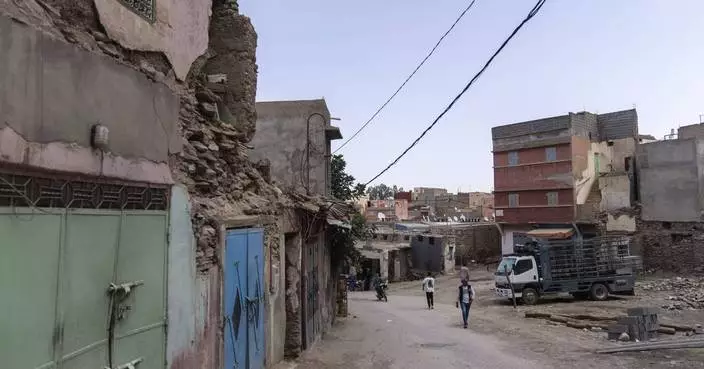DUBAI, United Arab Emirates (AP) — Since the United Arab Emirates witnessed its heaviest recorded rainfall ever three months ago, the desert nation has issued a multitude of warnings about dengue which, activists say, has surged and struck hardest among the vast populations of laborers.
The tropical disease, spread by mosquitos, has witnessed a worldwide spike. The World Health Organization declared it an emergency in December as cases have globally increased tenfold over the last generation.
Many people infected by the virus are asymptomatic, but some experience headaches, fever and flu-like symptoms. Severe cases can lead to serious bleeding, shock and death.
In the UAE, a federation of seven sheikhdoms, the disease has usually spread due to travel on long-haul carriers into the country. However, on April 25, the Department of Health alerted that locally transmitted cases without travel history have been documented since 2023 "as a result of climate change and an environment conducive to mosquito breeding."
Changes in weather patterns turn countries previously inhospitable to Dengue-carrying mosquitos into possible habitats.
The April deluges, which flooded portions of major highways and Dubai’s international airport, only amplified the risk in the Gulf country. While major thoroughfares quickly saw vacuum pumps arrive, others remained saddled for weeks with stagnant pools of water, where virus-carrying mosquitos lay their eggs and spread the disease.
No official figures have been shared in the Emirates where broad laws severely restrict freedom of speech and almost all major local media are either state-owned or state-affiliated outlets. Queries sent to various governmental organizations about the exact number of confirmed dengue cases went unanswered.
The WHO also declined to discuss the situation in the UAE when reached by The Associated Press. However, the U.N. health agency noted in its May 30 report that there have been continued dengue outbreaks in Mideast “countries with stronger health-care systems that have been affected by unusual rains due to climate change.” It also said: “Timely data sharing also remains a challenge for other countries in the region for reasons such as the potential impact in the tourism, economy and other sectors.”
Meanwhile, public awareness campaigns across the sheikdom on the importance of cleaning stagnant water and warnings about dengue, also known as breakbone fever, have been widely aired on state media.
Still, activists stressed that communities of laborers are bearing the brunt of the disease.
The slow cleanup of flooded areas in industrial sites has worsened the spread of the disease among laborers, some of whom have left their home countries already affected by climate change for a chance to earn money in the UAE, according to a report issued by FairSquare, a London-based group focused on labor rights in the Gulf Arab states.
The July 4 report detailed a surge in dengue cases among migrant worker communities across the Emirates, citing three healthcare workers, a government official, and migrant workers. The group attributed the rise in cases to a lagging government response to the spread of the viral infection in areas where migrant laborers live and work.
James Lynch, a FairSquare co-director once banned from entering the UAE while at Amnesty International, told the AP that “the important thing here is the disproportionate impact” of how the virus seems to mainly spread among laborers. “What you would want to see is an even-handed approach to dealing with clean up and it doesn’t seem to be the case here.”
No specific figures were shared in the report which quoted a nurse, who works at a private clinic in the city of Sharjah, as saying they receive over 30 cases every four or five days, describing the rise in cases as “alarming.”
The UAE’s overall population of more than 9.2 million is only 10% Emirati, with millions of low-paid workers from Africa, the Middle East and Southeast Asia.
“I call it a double whammy of climate change on this very vulnerable population,” said Barrak Alahmad, a research fellow at the Harvard T.H. Chan School of Public Health. “I see that these migrant workers are on the front line facing the effects of climate change and health.”
The effect of the virus also resonated in Iran.
The Islamic Republic relies on Dubai as a major transit point to the rest of the world due to the international sanctions it faces over its nuclear program and tensions with the West.
On July 9, Shahnam Arshi, an Iranian health ministry official said of 149 people infected with dengue, 130 had been infected in the UAE while Hossein Farshidi, deputy health minister, said the first known infected person entered Iran on May 15, after the flooding in the Emirates.
Farshidi, in his latest remarks on July 23, said the number of infected people in the country, rose to 152, without giving further details.
This year, Iran also reported its first locally transmitted cases of dengue, saying the number rose to 12 in July, all of them located in the Bandar Lengeh port, south of Iran.
Earlier this year, Brazil's Rio de Janeiro declared a public health emergenc y because of mosquito-borne dengue fever, while in July, U.S. officials warned doctors to stay on alert as the tropical disease broke international records.
“Each year, we are going to see new places and different local governments struggling with either dengue or other issues from climate change,” said Alahmad, the research fellow. “It is an ever-expanding issue. I don’t know if we have an easy fix to this.”
Associated Press writer Amir Vahdat in Tehran, Iran contributed to this report.
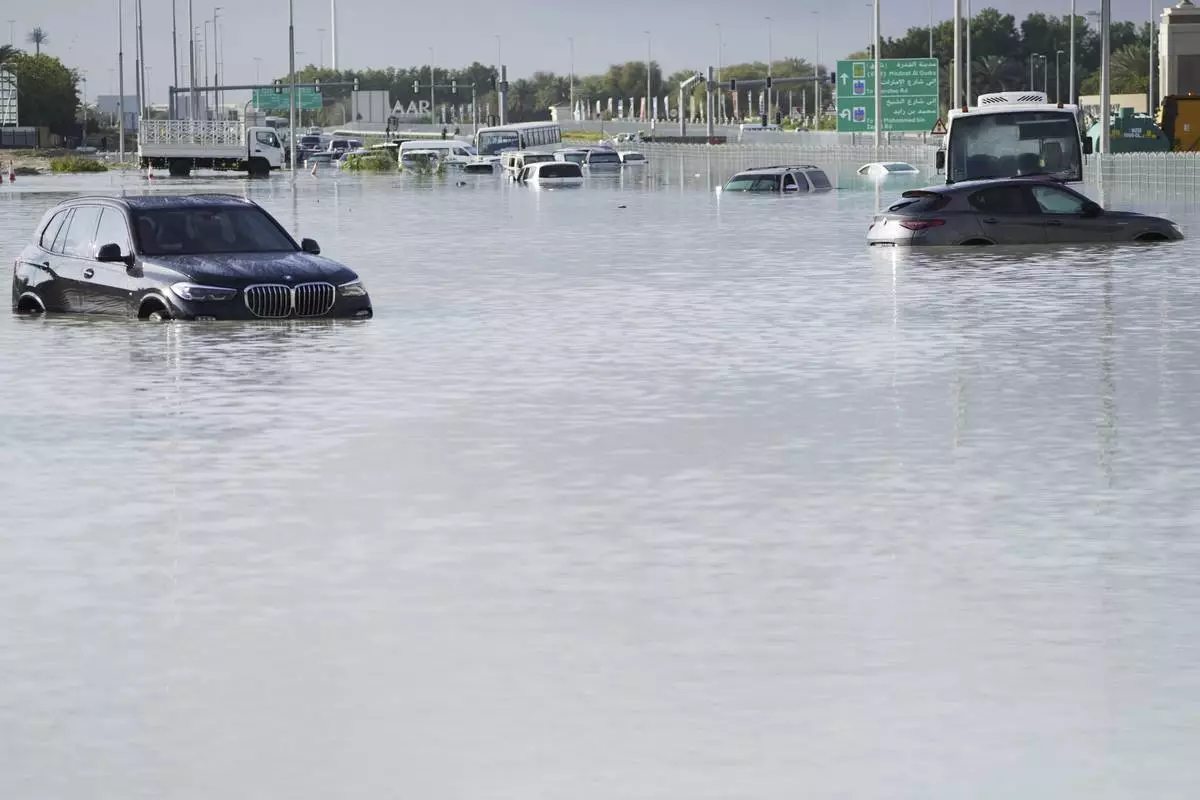
FILE - Vehicles sit abandoned in floodwater covering a major road in Dubai, United Arab Emirates, Wednesday, April 17, 2024 after heavy thunderstorms. (AP Photo/Jon Gambrell, File)
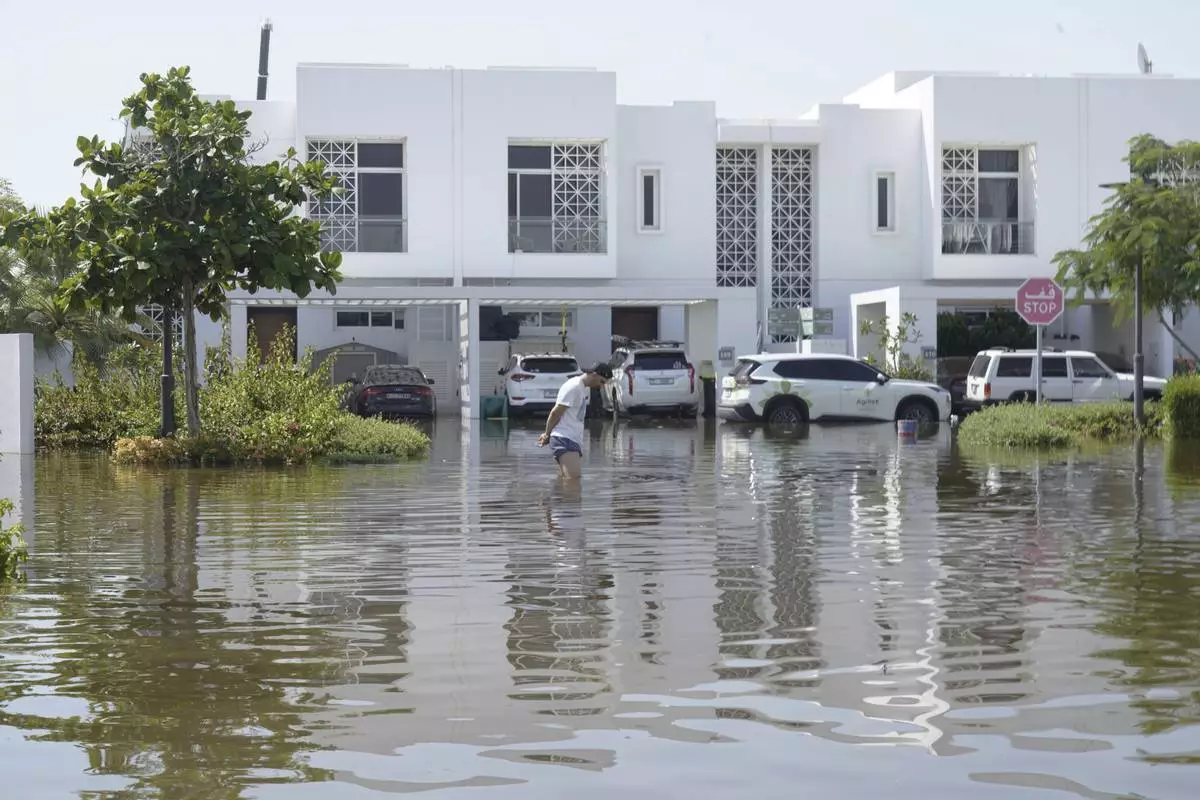
FILE - A man walks through in floodwater covering a major road in Dubai, United Arab Emirates, Thursday, April 18, 2024 after heavy thunderstorms. (AP Photo/Jon Gambrell, File)
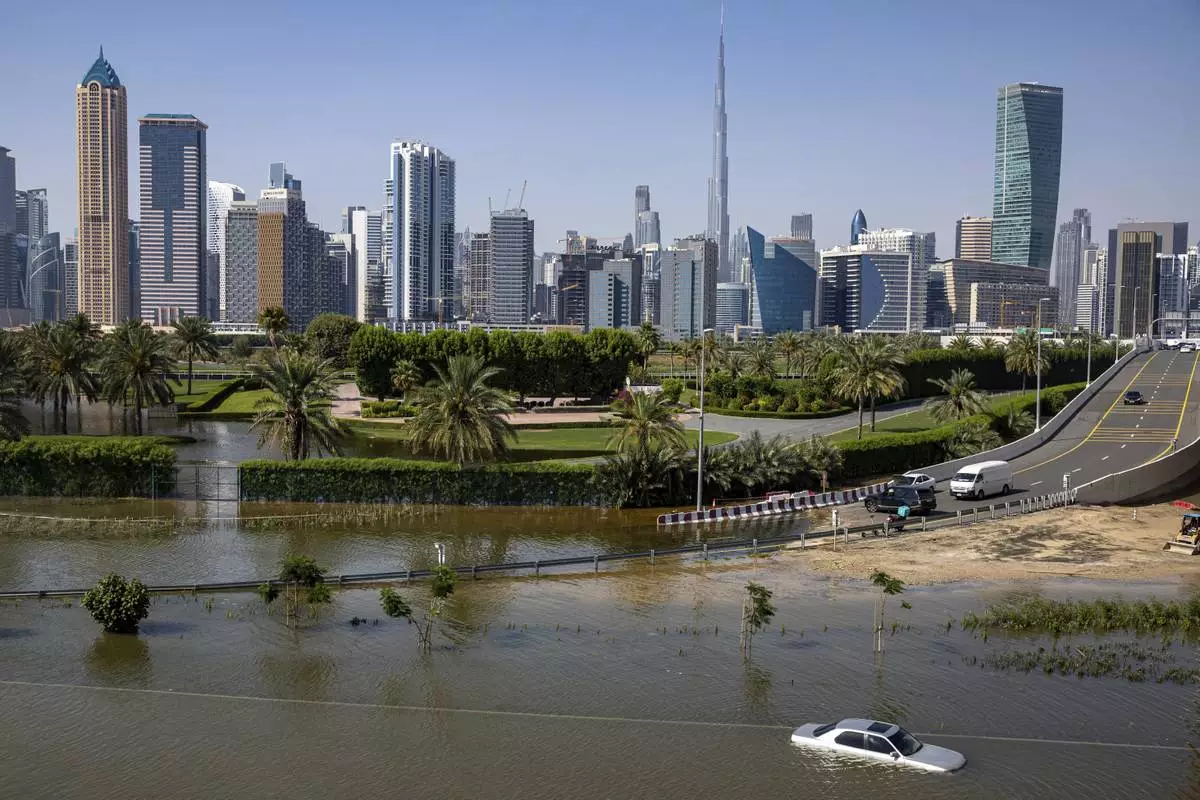
FILE - An abandoned vehicle stands in floodwater covering a major road in Dubai, United Arab Emirates, Thursday, April 18, 2024 after heavy thunderstorms. (AP Photo/Christopher Pike, File)


